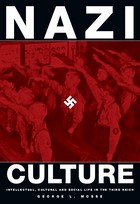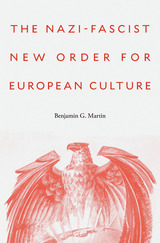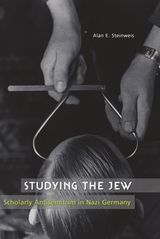
What was life like under the Third Reich? What went on between parents and children? What were the prevailing attitudes about sex, morality, religion? How did workers perceive the effects of the New Order in the workplace? What were the cultural currents—in art, music, science, education, drama, and on the radio?
Professor Mosse’s extensive analysis of Nazi culture—groundbreaking upon its original publication in 1966—is now offered to readers of a new generation. Selections from newspapers, novellas, plays, and diaries as well as the public pronouncements of Nazi leaders, churchmen, and professors describe National Socialism in practice and explore what it meant for the average German.
By recapturing the texture of culture and thought under the Third Reich, Mosse’s work still resonates today—as a document of everyday life in one of history’s darkest eras and as a living memory that reminds us never to forget.

Following France’s crushing defeat in June 1940, the Nazis moved forward with plans to reorganize a European continent now largely under Hitler’s heel. While Germany’s military power would set the agenda, several among the Nazi elite argued that permanent German hegemony required something more: a pan-European cultural empire that would crown Hitler’s wartime conquests. At a time when the postwar European project is under strain, Benjamin G. Martin brings into focus a neglected aspect of Axis geopolitics, charting the rise and fall of Nazi-fascist “soft power” in the form of a nationalist and anti-Semitic new ordering of European culture.
As early as 1934, the Nazis began taking steps to bring European culture into alignment with their ideological aims. In cooperation and competition with Italy’s fascists, they courted filmmakers, writers, and composers from across the continent. New institutions such as the International Film Chamber, the European Writers Union, and the Permanent Council of composers forged a continental bloc opposed to the “degenerate” cosmopolitan modernism that held sway in the arts. In its place they envisioned a Europe of nations, one that exalted traditionalism, anti-Semitism, and the Volk. Such a vision held powerful appeal for conservative intellectuals who saw a European civilization in decline, threatened by American commercialism and Soviet Bolshevism.
Taking readers to film screenings, concerts, and banquets where artists from Norway to Bulgaria lent their prestige to Goebbels’s vision, Martin follows the Nazi-fascist project to its disastrous conclusion, examining the internal contradictions and sectarian rivalries that doomed it to failure.

Early in his political career, Adolf Hitler declared the importance of what he called “an antisemitism of reason.” Determined not to rely solely on traditional, cruder forms of prejudice against Jews, he hoped that his exclusionary and violent policies would be legitimized by scientific scholarship. The result was a disturbing, and long-overlooked, aspect of National Socialism: Nazi Jewish Studies.
Studying the Jew investigates the careers of a few dozen German scholars who forged an interdisciplinary field, drawing upon studies in anthropology, biology, religion, history, and the social sciences to create a comprehensive portrait of the Jew—one with devastating consequences. Working within the universities and research institutions of the Third Reich, these men fabricated an elaborate empirical basis for Nazi antisemitic policies. They supported the Nazi campaign against Jews by defining them as racially alien, morally corrupt, and inherently criminal.
In a chilling story of academics who perverted their talents and distorted their research in support of persecution and genocide, Studying the Jew explores the intersection of ideology and scholarship, the state and the university, the intellectual and his motivations, to provide a new appreciation of the use and abuse of learning and the horrors perpetrated in the name of reason.
READERS
Browse our collection.
PUBLISHERS
See BiblioVault's publisher services.
STUDENT SERVICES
Files for college accessibility offices.
UChicago Accessibility Resources
home | accessibility | search | about | contact us
BiblioVault ® 2001 - 2024
The University of Chicago Press









